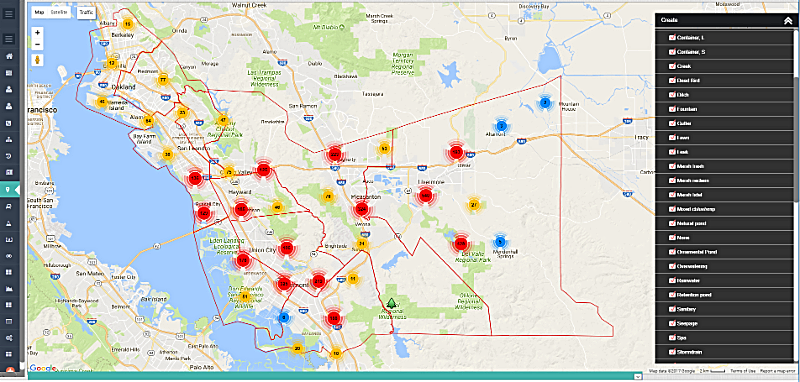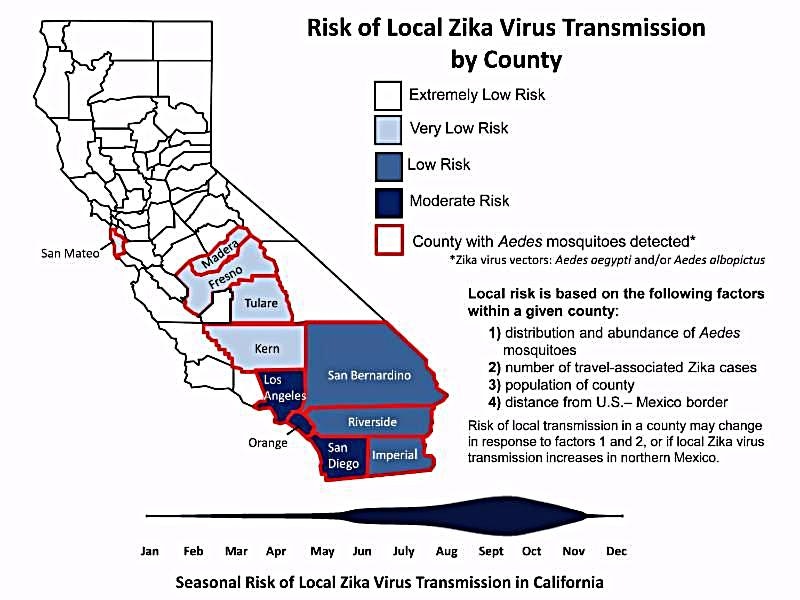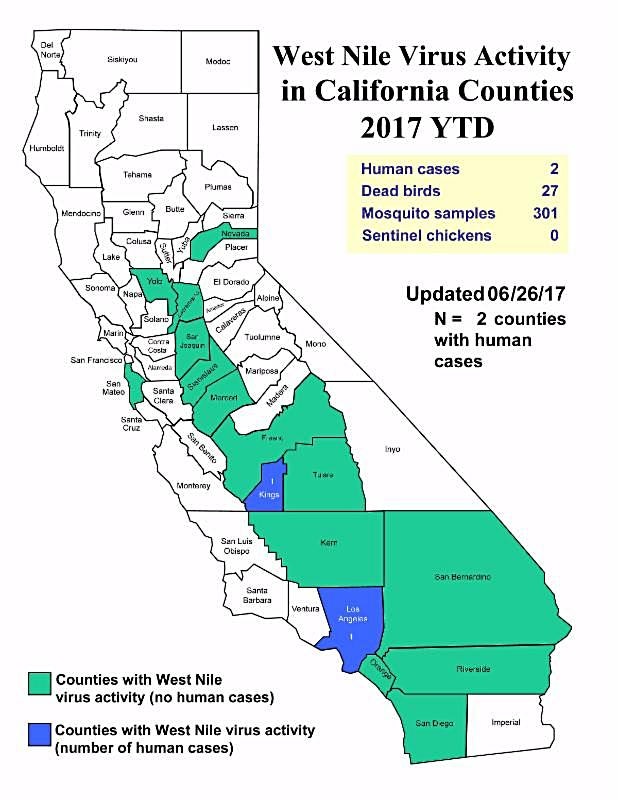Summer 2017 Newsletter
Quarterly Newsletter and Updates Summer 2017
Upcoming Technological Advances
This summer the District will be deploying a new geospatial database. The database brings a new dimension to our mosquito control efforts by allowing staff to see the locations of known mosquito breeding sites, traps, service requests, and testing data on a map. It also allows the use of business intelligence programs such as Microsoft BI and Tableau to analyze treatment and surveillance data. An additional efficiency feature is the systems compatibility with the statewide database allowing surveillance and testing data from the District's laboratory to be automatically uploaded.

The District also intends to employ unmanned aircraft systems (UAS or drones) in the future to aid in mosquito surveillance and potentially treatments. Four employees attended a UAS training course and plan to acquire a UAS pilots license. The benefits of using a UAS for mosquito control include :
- Zero footprint on marsh land and sensitive lands
- Reduced drift by using directed aerial spray applications
- Better monitoring of irrigation
- Increased detection of mosquito larvae
- Significant employee safety risk reduction
- Reduced noise and fuel emissions
- Reduced costs of equipment and labor
Have you seen it?
The District received grant money from the Public Health Foundation Enterprises for invasiveAedes related public education and surveillance. With those funds, seasonal employees have been hired and supplies purchased to increase the District's invasive Aedes trapping network. Additionally, ad space has been purchased on the electronic billboard in front of the Oakland Coliseum and Oracle Arena. The graphic rotates among 8 others advertisements and will run through the months of June and July.

Zika Virus
Local transmission of Zika virus occurred in both Florida and Texas in 2016. Although there are many communities in California where the mosquitoes capable of transmitting Zika have been found, the disease has not been spread locally. This year, 67 California residents (Source:http://bit.ly/2spj5To) have acquired Zika virus while travelling abroad. It is important to always protect yourself from mosquito bites wherever you may be.

What you can do to help keep invasive Aedes mosquitoes out of Alameda County:
- Inspect your yard regularly and remove any clutter or containers that may hold water.
- If you store water, make sure all containers are tightly covered to keep mosquitoes out.
- Scrub outdoor containers that have held water with hot, soapy water to kill mosquito eggs.
- Wear mosquito repellent when spending time outdoors.
- Do not bring home items that have held standing water (tires, containers, bromeliads, bamboo, etc.) from areas with invasive Aedes mosquitoes. Click here to see areas in California with invasive Aedes.
If you will be traveling to an area with Zika virus:
- Use insect repellent. Look for these ingredients: DEET, picaridin, IR3535, Oil of Lemon Eucalyptus, or para-Menthane-3,8-diol (PMD). Reapply often, as directed on the product label. Remember to apply sunscreen first and then insect repellent.
- Cover exposed skin when possible.
- Stay and sleep in screened-in rooms or use a bed net.
- Watch for symptoms after you get home.
- Call your doctor immediately if you suspect Zika.
- Use insect repellent for 3 weeks after travel.
- Use condoms when you have sex for at least 6 months.
Pregnant? Trying to conceive?
Zika is linked to birth defects. Pregnant women should consider postponing travel to any area with Zika. If your male partner travels to these areas, either use condoms or don't have sex for the rest of your pregnancy.
Additional Resource from the CDC
West Nile Virus*

As summer progresses West Nile virus (WNV) activity increases statewide. While fewer dead birds and chickens have tested positive for WNV in 2017 than this time last year, the numbers for mosquito samples and humans have increased. Dead bird reports are crucial to our WNV surveillance program in Alameda County as they are typically our first indication of WNV activity. Dead birds can be reported through the state West Nile virus hotline (877) WNV-BIRD or through the internet at http://www.westnile.ca.gov/report_wnv.php. Statewide totals for WNV activity in 2017 are 27 dead birds, 301 mosquito samples, and 2 humans cases. The totals for California's WNV activity are updated weekly and can be found at www.westnile.ca.gov.
*Data as of June 26, 2017
Quarterly Numbers

Upcoming Events
- Alameda County Fair Display Booth (Alameda County Fairgrounds) - Friday, June 16th to Sunday, July 9th
- United 4 Safety Open House (San Leandro Police Department) - Saturday, July 8th
- Classroom presentation (Adventure Time, Independent Elementary School, Castro Valley) - Monday, July 10th
- Downtown Alameda's Art & Wine Faire (Park St. Business District, Downtown Alameda) - Saturday, July 29th & Sunday, July 30th
- Urban Shield Gray Command Community Preparedness Fair (3 Crosses Church, Castro Valley) - Saturday, September 9th
